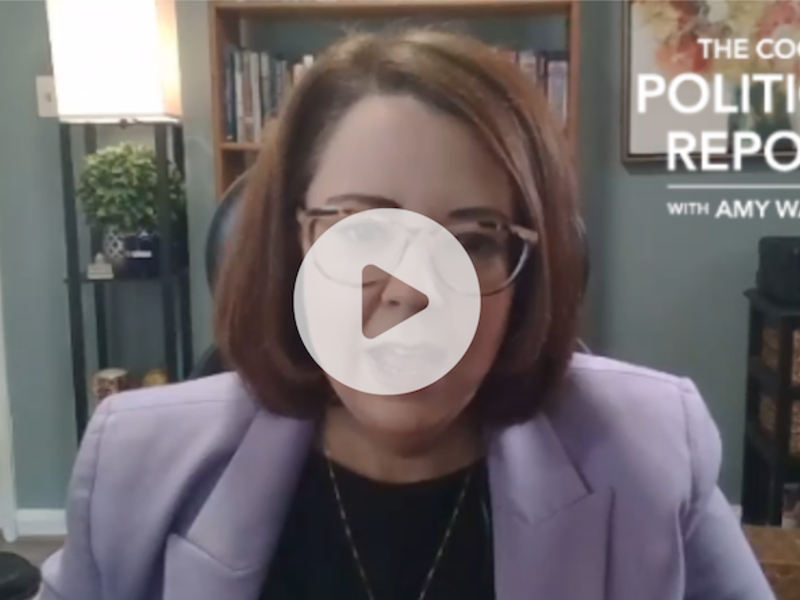
At this point in the 2020 presidential campaign, there are several things we can be reasonably sure about and some that we don’t know at all. We can be fairly confident that President Trump is going to seek reelection. While there is some resistance to him within the party, there is no chance anyone can deny him the Republican nomination—his base is sufficiently large that it would swamp the #NeverTrumpers in the party, and he averages an 89 percent job-approval rating among voters who identify as Republicans.
We can also be reasonably sure that he is going to face a difficult general election. While he has been assiduously feeding his base, it has come at the expense of those voters who are neither in the 35 percent or so that are in his base or in the 45 percent equally adamant in opposition. It’s a middle group of about 20 percent of voters, of which he needs to win over at least two-thirds in order to hit the minimum 270 Electoral College votes needed to get reelected.
Obviously, we don’t know how the economy will be performing on Election Day, and what will be happening around the world. But the two really key unknowns are who the Democratic nominee will be and how they and the Democratic Party will be perceived. Media coverage in recent months would suggest that Sens. Bernie Sanders and Elizabeth Warren, along with Rep. Alexandria Ocasio-Cortez, are now the faces of the Democratic Party, and that the party that was once viewed through the prism of Franklin Roosevelt’s New Deal, Harry Truman’s Fair Deal, John F. Kennedy’s New Frontier, and Lyndon Johnson’s Great Society is now to be seen as akin to democratic socialism. The question I would ask is, “If Democrats were to screw up what certainly appears to be an advantageous situation, wouldn’t this be a good place to start?”
If this election is going to be a referendum on Donald Trump as a person and president, then Democrats ought to have a good shot at winning. But if the election becomes somewhat more complicated, with Democrats embarking on a path that is considerably more ideological than the one that Presidents Clinton and Obama pursued—the former going center-left, the latter further left, but not too far—then that could make for a considerably more competitive general election. The most recent growth area in the Democratic Party has been among college-educated, suburban women, and their movement toward the Democrats is more the product of their aversion to Trump than an embrace of democratic socialism.
In the NBC News/Wall Street Journal poll conducted Feb. 24-27 (the tail end of the interviewing was conducted the day of Michael Cohen’s public testimony on Capitol Hill, but before the collapse of the Hanoi summit talks with North Korea), Trump’s approval rating was up 3 points from January, to 46 percent (31 percent strongly approving), with 52 percent disapproving (43 percent strongly disapproving). The poll, conducted jointly by Democratic firm Hart Research and the GOP firm of Public Opinion Strategies, found that among the 720 registered voters interviewed, 41 percent were inclined to vote for Trump (27 percent definitely, 14 percent probably) while 48 percent were more disposed to vote against him (33 percent definitely, 15 percent probably).
For a long time, more Americans have seen themselves as conservative than liberal, but their views on the role of government are a bit more complicated. When asked whether they thought government should do more to solve problems and meet the needs of people or that government is doing too many things better left to businesses and individuals, 55 percent responded that government should do more and just 41 percent said government should do less.
But when these same voters were asked how they felt about voting for someone who was a socialist, 43 percent said “very uncomfortable” and another 29 percent “have some reservations.” Just 4 percent were “enthusiastic” and 21 percent “comfortable.” Among all adults, 6 percent viewed socialism very positively, 12 percent somewhat positively, 27 percent neutrally, 14 percent somewhat negatively and 36 percent very negatively. According to First Read, the morning newsletter published by NBC News’s political unit, just 9 percent of independents and 13 percent of moderates view socialism favorably, a flashing red light for Democrats contemplating embracing that approach.
It is very clear, listening to Trump as well as to GOP strategists, that they are building up democratic socialism as the straw man to knock down in this campaign. Their goal obviously is to make electing a Democratic president an unacceptable alternative to Trump. So it basically comes down to whether Democrats want this election to be about Trump or about embarking on a new and different philosophical direction. One of those paths seems to be very risky.
This story was originally published on nationaljournal.com on March 5, 2019










Subscribe Today
Our subscribers have first access to individual race pages for each House, Senate and Governors race, which will include race ratings (each race is rated on a seven-point scale) and a narrative analysis pertaining to that race.